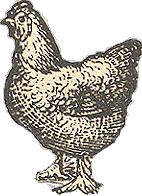Or at least famous ones: a bit of fluff from WalletPop.
Jury acquits W.R. Grace and execs in Libby, Mont. asbestos case
A high-profile federal environmental prosecution has struck out following charges of prosecutorial misconduct as well as disputes over the quality of the evidence [Montana’s News Station, Van Voris/Bloomberg] Carter Wood and others have been blogging the case at Point of Law, and a joint blog effort of the University of Montana’s law and journalism schools has given the case extensive coverage. See also Kirk Hartley.
Right to sue over “heightism”?
Reading law review articles can be so depressing, though at least in this case the author winds up rejecting the idea of a comprehensive federal law “that would flatly prohibit height-based employment decisions” (via).
National Animal Identification System advances
The controversial farm-animal tracking proposal NAIS seems to be marching ahead at a rapid pace toward mandatory adoption. La Vida Locavore:  “During the hearing, I never once heard that there was any distinction between large commercial, small commercial selling direct to consumers, homesteaders or hobbyists. All I ever heard was that everyone wants a mandatory NAIS. For everyone.” The tagging and paperwork would apply not only to four-footed livestock, but to poultry, fish, shellfish “and some crustaceans. Just about any animal you might find on a farm except dogs, cats and rabbits.” Earlier here and here.
“During the hearing, I never once heard that there was any distinction between large commercial, small commercial selling direct to consumers, homesteaders or hobbyists. All I ever heard was that everyone wants a mandatory NAIS. For everyone.” The tagging and paperwork would apply not only to four-footed livestock, but to poultry, fish, shellfish “and some crustaceans. Just about any animal you might find on a farm except dogs, cats and rabbits.” Earlier here and here.
“Your yard sale is illegal”
I’m reasonably sure that Katherine Mangu-Ward’s new Reason blog post on CPSIA is the only instance in which anyone has ever called me a “rock star”.
“Why Does the Vaccine/Autism Controversy Live On?”
A major article in the new Discover. We’ve been covering Robert F. Kennedy, Jr. (and his ties to the mass-tort litigation business) for a long time.
Content-scraper gets into scrape
In Popehat’s words, “Stealing copyrighted material, but only from lawyers. What a brilliant idea.”
Member of Congress defends speech-ban bill
Although the proposed Megan Meier Cyberbullying Prevention Act would criminalize a wide range of online speech that leads to emotional distress, Rep. Linda Sanchez (D-Calif.) says we should rest assured that judges in their discretion will apply it only to nasties who are bothering our children — except that the bill is in no way limited to that type of speech. Eugene Volokh dissects (earlier here and here).
“Attorney Can’t Ask 3rd Party to ‘Friend’ Witness on Facebook, Opinion Says”
At this rate they’re going to start taking away all the fun ways to win a case [ABA Journal]
Roquefort cheese tariff war
It appears to have ended happily (earlier here and here).
